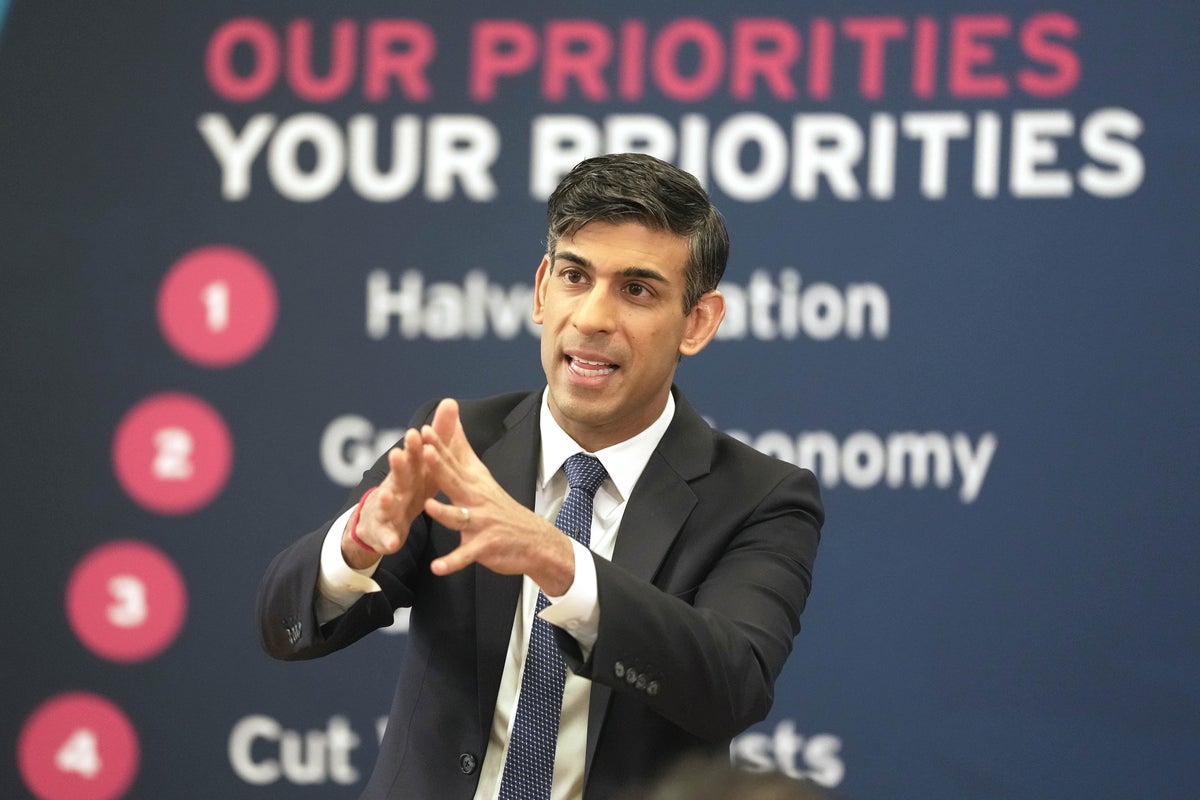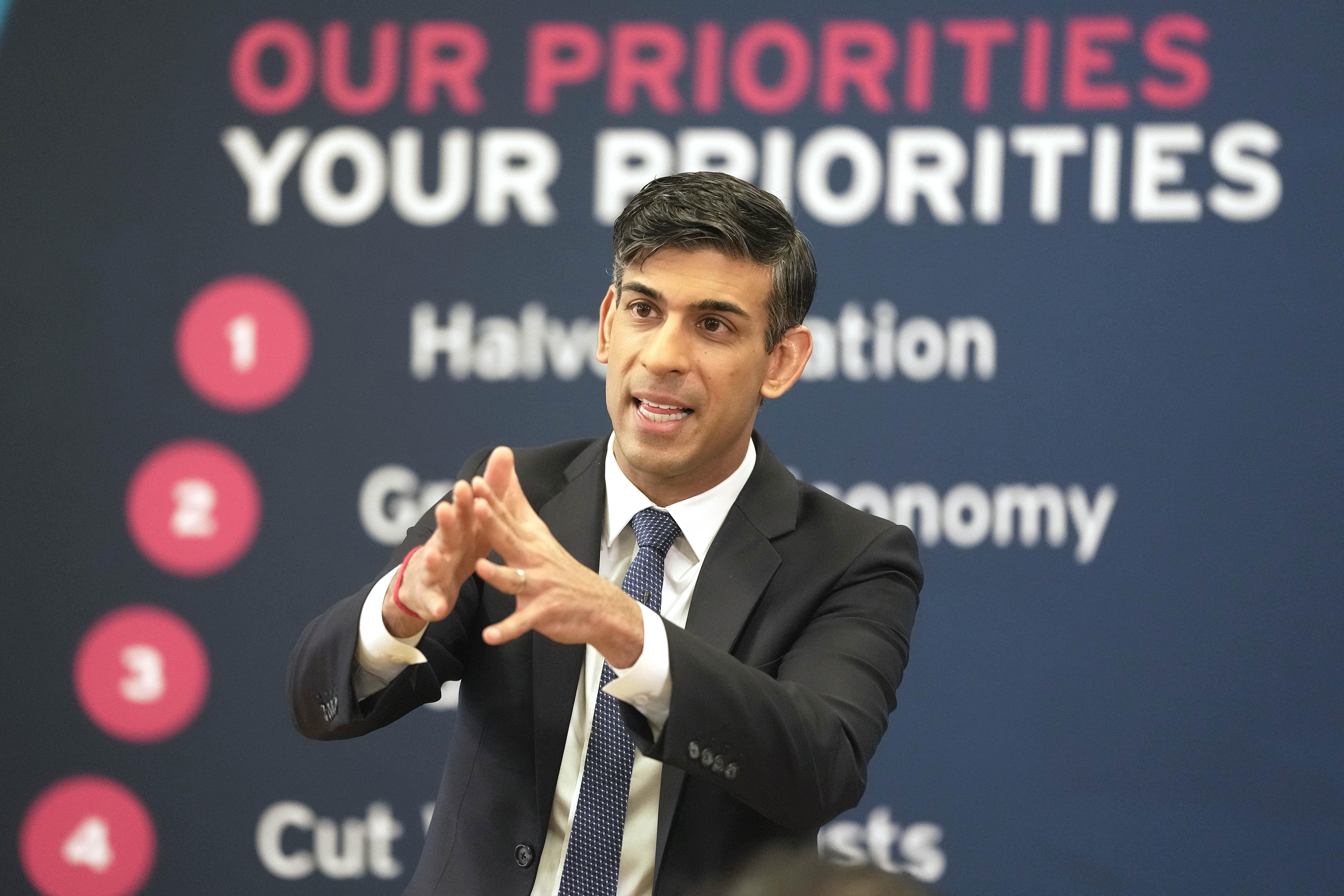
Rishi Sunak is set to deliver a speech on Monday in which he will vow to tackle what he described as the UK’s “anti-maths mindset” to boost the economy.
The prime minister will announce an expert-led review into how to carry out his plan to ensure all pupils in England study some form of maths up to age 18, without making A-Level compulsory.
“We’ve got to change this anti-maths mindset. We’ve got to start prizing numeracy for what it is – a key skill every bit as essential as reading,” Mr Sunak will say in a speech from north London later on Monday morning.
“I won’t sit back and allow this cultural sense that it’s OK to be bad at maths to put our children at a disadvantage. My campaign to transform our national approach to maths is not some nice-to-have. It’s about changing how we value maths in this country”.
Below we look at everything we know about Mr Sunak’s plan.
What do we know about the maths plan?
There are around 8 million adults in the UK who have the numeracy skills of primary school children, according to government figures.
Currently only around half of 16-19 year olds study any maths at all and the problem is particularly acute for disadvantaged pupils, 60 per cent of whom do not have basic maths skills at age 16.
Despite these poor standards, the UK remains one of the only countries in the world not to require children to study some form of maths up to the age of 18.
To tackle this Mr Sunak, setting out his priorities as PM in January, set an “ambition” of ensuring that all pupils in England study some form of maths to the age of 18.
“Recognising the practical challenges involved, the PM will acknowledge that reform on this scale won’t be easy,” No 10 said in a statement at the time.
“He will commit to starting the work of introducing maths to 18 in this parliament and finishing it in the next.”

Few other details of the plan were set out and the government accepted the aspiration was unlikely to be achieved before the next general election, expected in the autumn of next year.
In addition to the expert review being set up, overnight reports said Mr Sunak would also announce plans for a new qualification for primary school maths teachers and increase the number of Maths Hubs, which brings together education professionals in a collaborative national network of 40 hubs, each locally led by an outstanding school or college, to develop and spread excellent practice, for the benefit of all pupils and students.
What has the reaction been?
Opposition MPs accused Mr Sunak of rehashing his ambition to distract from an ongoing pay dispute which will see teachers walk out again later this month.
Teachers and education expert, meanwhile, have warned the policy does not address major problems in the wider education system, including the already severe shortage of maths teachers.
Geoff Barton, general secretary of the Association of School and College Leaders, said that instead of “re-announcing a vague and poorly thought-out policy”, Mr Sunak should focus on resolving the pay dispute which has triggered industrial action.
“It is hard to understand why the prime minister is rehashing his ambition of maths to 18 having only announced this policy in January and with no further detail of what it will entail or how it will be delivered.
“It seems like an attempt to divert attention away from the most pressing matter in education in England which is the industrial dispute triggered by the erosion of teacher pay and conditions and resulting crisis in recruiting and retaining enough staff.”

He added: “These severe shortages directly undermine the prime minister’s ambition because it means there are not enough maths teachers to deliver even the existing requirements let alone extend maths to every pupil to the age of 18.”
Labour criticised the “empty pledge”, with shadow education secretary Bridget Phillipson saying: “Once again, the prime minister needs to show his working: he cannot deliver this reheated, empty pledge without more maths teachers.
“But after 13 years of failing our children, the Tory government repeatedly misses their target for new maths teachers, with maths attainment gaps widening and existing teachers leaving in their droves.
“Labour does not need a new advisory group to make the right choices for our children. We will drive up standards in every corner of our country by investing in thousands more teachers, including maths teachers, by ending tax breaks for private schools.”
The Liberal Democrats said it doesn’t take an A-Level in maths to work out that Mr Sunak’s plan “doesn’t add up”.







